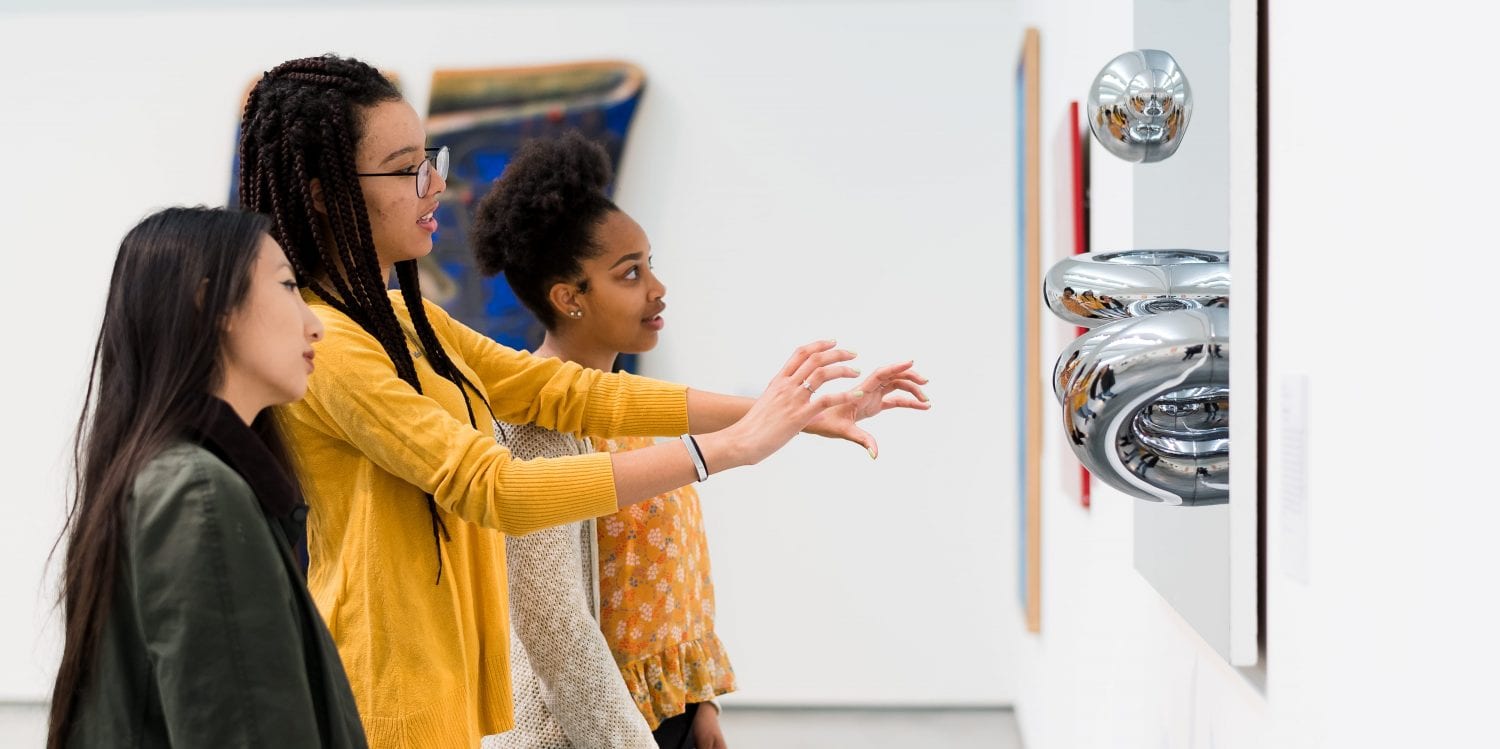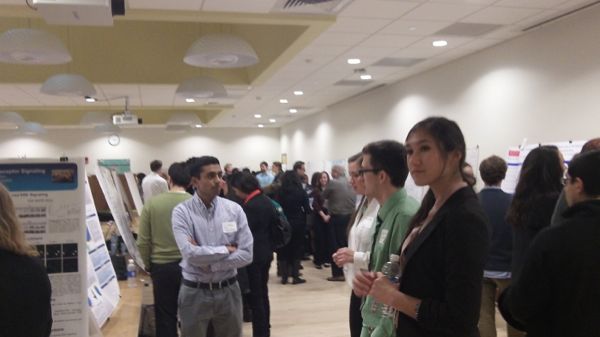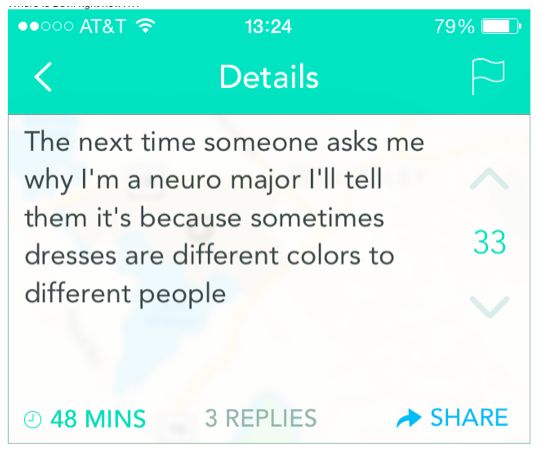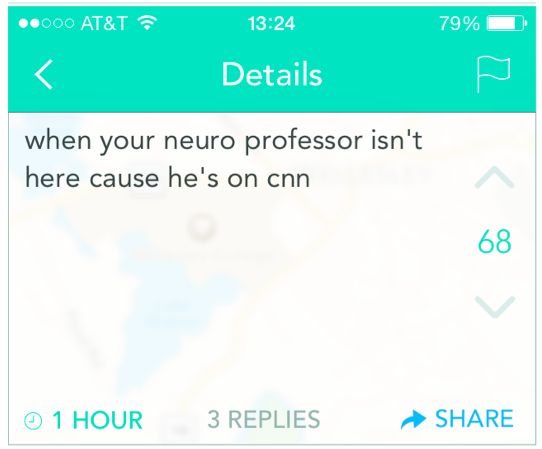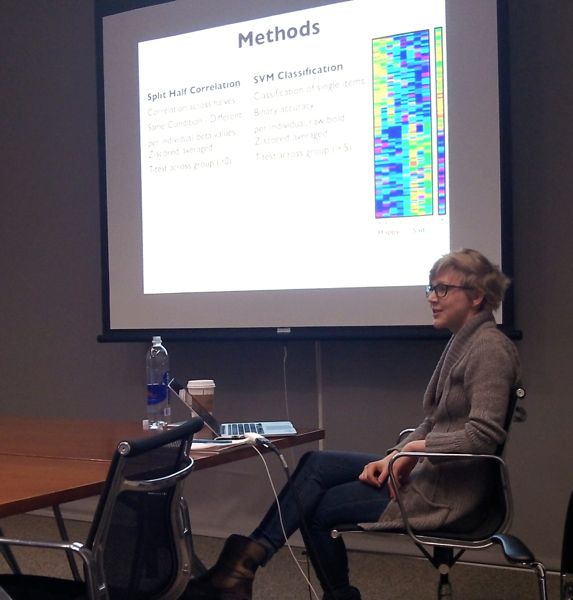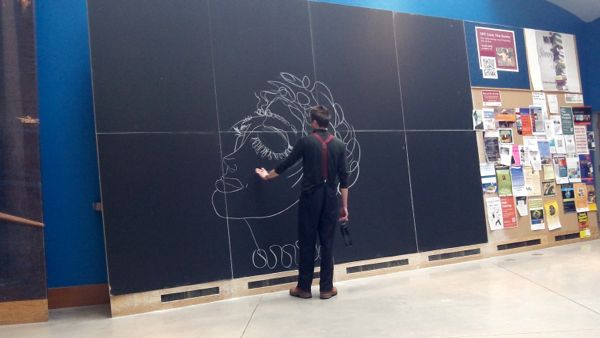Hello readers 🙂
I have so much to share with you this week! The first thing that I am thrilled to announce is that I was accepted for a Masters of Philosophy of Biological Sciences (Psychology) at the University of Cambridge! Providing funding works out (fingers crossed) I would be working in Dr. Kourtzi’s lab in Experimental Psychology, studying learning in the context of computational vision. I am absolutely delighted. I never would have imagined this happening even last year; and then in August, it became “the dream” that built throughout the many hours of effort that went into the Churchill Scholarship application. I didn’t receive the Churchill, but I was accepted at Cambridge, and I am astonished and so pleased by the path that has opened for me. It has been truly gratifying, as well, to hear the sincere excitement from so many people when I tell them where I’m going to be next year. It is a moment of culmination, many years of friendship and effort building on each other, a fascinating new experience in my life and college.
I am ahead of the crowd in terms of knowing what I will be doing next year, but many of my friends are in the interview process right now. Tiffany and Emily have been invited to med school interviews; Sebiha is heading to an interview on Tuesday in pursuit of an MD/PhD; Gabby has received several interviews for the positions she’s applied to for teaching English in China. Medical school is more competitive this year than any previous years, so there’s been some good and bad news (including waitlisting—medical schools can waitlist until August, which is more stressful than rejection) from many of my friends. But mostly we are in the interview stages, and almost everyone is waiting for more invitations and decisions. On the graduate school end, I have been hearing spectacular updates from my friends who were in the MSRP/CMBB program this summer at MIT—many of them have gotten into top graduate schools in pursuing biological research. It’s been quite an eventful February for seniors :).
Hmmm :). The next thing I wanted to talk to you about was the NEURON Conference I attended in Connecticut. This was the conference where I had to drive more than 200 miles in a Zipcar and was unduly freaked out about whether I could use the gas station or not. Turns out, I had a fantastic time—I took the advice of Tiffany and Gabby, and begged a friend to come along, and it was thoroughly one of the most enjoyable ways I have spent a Sunday. Alyssa and I walked to the Science Center parking lot at 7am, drove the Zipcar down to Quinnipiac University, spent the whole day presenting my poster, listening to the keynote, doing homework, eating the catered food, and listening to other peoples’ posters at the poster sessions. Then we drove back, had a dinner out at Lemon Thai in Wellesley the town, and were back in the dorms by 9pm.
Alyssa had participated in Science Fair when she was in high school, so when she arrived she patiently listened to me for an hour and a half while I tried to figure out what I would say to the judges who were going to be awarding prizes for the posters. My “story” was a complete mess—when you present research, there’s always a storyline: a question, methods, results, conclusion, and future work, and if you don’t have a good storyline the ensuing confusion will result in your listeners bored to pieces. I kept on getting stuck, because I’ve worked on this project long enough that the “motivation for the study”—the core question, the essence of the storyline—has changed several times, and I couldn’t sort how I should be narrating my results. Alyssa waited for me whenever I stuttered to a halt, and when I had finished, she reformatted everything, describing “well, it seems to me that this is the key finding, and that if you describe this figure, and then spend less time on this one, and then finish here, it will flow well.” I have never met someone so patient with listening to unprepared science, someone who listened to me wander along, and concluded that “Yes, this is so much better to see in poster-form [I had explained my research several times to her verbally last semester], and the research is so cool!”
I feel much better prepared for my Ruhlman presentation in April after working with Alyssa :). Ruhlman is Wellesley’s spring student conference, where students showcase their research in 15-minute talks. That’s a long way off yet—and my thesis will be due five days before—but I welcome the chance to practice this on a higher level. After my thesis committee meeting two weeks ago, when I bemoaned that there was so much left to do and so much not working, Prof. Conway informed me that actually I was well on track. It’s funny that I’ve gotten lost in the details— and also informative, because one of the odd things I’ve noticed this year is that I know a lot about color. Much of that information accumulated over years, or is new information that I wouldn’t have been able to understand without years of exposure. I was listening to a talk on color on WNYC a few weeks ago (ah, the joys of being a test subject in my own experiment. I’m pressing the space bar while staring at a colored screen for hours at a time—audiobooks are my best friend). And strangely, I knew the answers to most of the questions people asked. I also know the names of a lot of the scientific community studying color, because over Wintersession I wrote the Introduction to my thesis and that thing has over 100 references. Something I find intriguing is that the selling point for college is to go and learn critical thinking skills—that’s the selling point for graduate school too, actually—but we’re actually coming away with a bucketload of content as well. Who knows when all of this color information is useful, but then again, it’s hardly the only thing I know a lot about that I’m not using in every day life (hobbies, anyone?)
Speaking of which, HAVE YOU GUYS HEARD ABOUT THE DRESS? I find this hilarious, because just when I’m speaking about having a lot of non-relevant color knowledge, a color perception phenomenon starts trending in the mass media and the answer to the question is exactly what Prof. Conway, my research advisor, studies. If you haven’t heard about it, check out Prof. Conway’s articles, one in Wired and on in the Guardian. He was also on NPR. One of Prof. Conway’s previous lab techs, Rosa Lafer-Sousa, gave probably what was my favorite account on her Facebook page. And some comments from the Wellesley community:
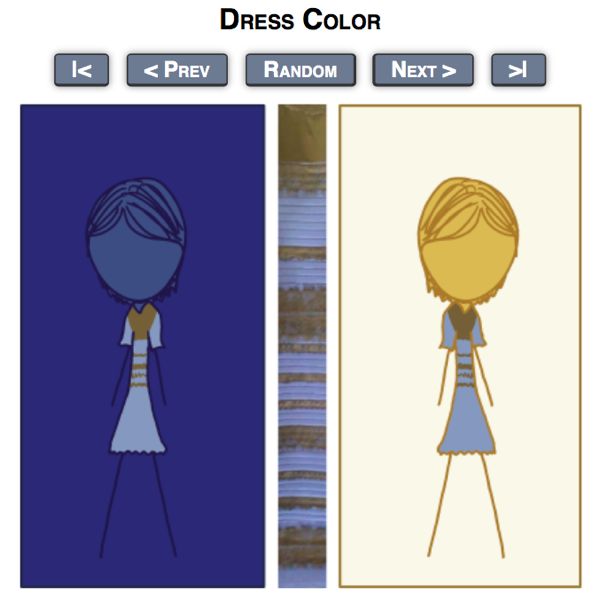
And because xkcd is my absolute favorite science-information site, here’s the comic from Friday.
http://xkcd.com/1492/
As always, Randall Munroe summarizes complex information beautifully :).
In short, Friday was exciting, and it’s so fun to be in exactly the place where science is happening.
On that note, I find it astounding and amazing that I have access to so many important people and ideas. I’ve been obsessed with Prof. Rebecca Saxe’s lab at MIT for a while now—she studies Theory of Mind, which is when you’re thinking about what another person is thinking. Turns out, there’s a region of the brain that is responsible for Theory of Mind reasoning… and only Theory of Mind reasoning. Like, it doesn’t become excited when you’re thinking about your lunch, or thinking about someone else’s body—it becomes excited when you’re thinking specifically about what they’re thinking. This is amazing on many counts, because the brain’s representations are usually distributed—we can’t have a patch of cortex specifically responsible for thinking about how to solve math problems, and another concerned with how to write essays, because we simply don’t have enough space in our heads to represent everything that needs to be represented. Information is thus usually distributed across the brain, connected in networks, and it’s amazing that something as high-level as thinking about other people’s minds gets its own special chunk of cortex. Prof. Saxe was one of the discoverers of this region while she was in Prof. Kanwisher’s lab. I wrote a 12-page single space research paper on Theory of Mind for my capstone Neuroscience 100 class, I’ve been to all of Prof. Saxe’s lectures I could attend, I’ve read a good chunk of her papers—needless to say, when Dr. Jorie Koster-Hale’s name popped up as delivering a lecture at Harvard on Wednesday, I told my P.E. teacher I had to miss a class and stayed at MIT after class.
Dr. Koster-Hale was a graduate student in Prof. Saxe’s lab, and I recognized her right away because she looks just like the picture she posted on the SaxeLab website. I took the bus to Harvard after class at MIT (Prof. Conway’s lab is at Harvard Medical School, so I have an ID which lets me ride the M2 bus free to Harvard. Yes, I am aware that I sound ridiculous. Sometimes I get to use my Wellesley ID, MIT ID, and Harvard ID all in the same day, and I feel preposterously privileged.) Using the magical GPS on my phone, I was led to the same building where I presented a poster at one of Harvard’s undergraduate conferences sophomore year, and where I had been an fMRI subject two summers ago. (I do not know why everything I have done at Harvard has been at the Northwest building. I also cannot believe this is my life.) I then had some time to kill, so went downstairs to the student lounge, and took a Skype call with Suman, who is studying abroad in France. Then at 4pm I ran upstairs, helped myself to snacks, and saw Dr. Koster-Hale in the flesh. Her presentation was marvelous, and she was incredible at answering all of the questions—polite and firm and intelligent in every response, even when she was challenged. It was an interesting dynamic, because the audience was mostly male and the PIs (principle investigators, the professors who lead the labs) asked most of the questions, and Dr. Koster-Hale was perfectly composed, and then she’d drop their first names into the conversation and you’d realize that all of these people know each other and had spent years together at MIT. She is even more of a force to be reckoned with than I inferred from her papers, and I left with yet another person to look up to. I then went downstairs, caught the bus to MIT, caught the bus back to Wellesley, had dinner, worked out, and went to sleep. Where the science is happening, guys. Sometimes I cannot believe my life.
All right, last thing, because I know y’all never tire of hearing about science! (Did you know that my favorite class through middle and high school was English? And that I was a language kid—filled all of my non-core class slots with French, Spanish, and Chinese? People almost don’t believe me know. College converts you to the side that has cookies.) Next week, from Thursday until next Tuesday, I will be at COSYNE, a computational systems neuroscience conference, in Utah. I was incredibly fortunate to receive a grant from the NSF and Brain Corp to attend the conference as an undergraduate, and am so excited to attend. The first three days will be in Salt Lake City for the main conference, and then we’re heading up to a ski resort for the smaller workshops. It’s been crazy trying to organize money, flights, hotels, people, school—I’ve learned some things along the way—but I’m excited the long-planned for event is almost here :).
All right, readers, that’s it :). My two classes—Machine Learning and Linear Algebra—are both excellent, the sun no longer sets at 4pm, apparently the snow isn’t supposed to finish melting until mid-July, and that’s quite enough information for a single blog post. Wishing all of you the best, please send comments and questions through admission@wellesley.edu with my name in it (I’ll start doing this every post, I think, since it’s not straightforward), and thank you, always, for listening :).
Monica
